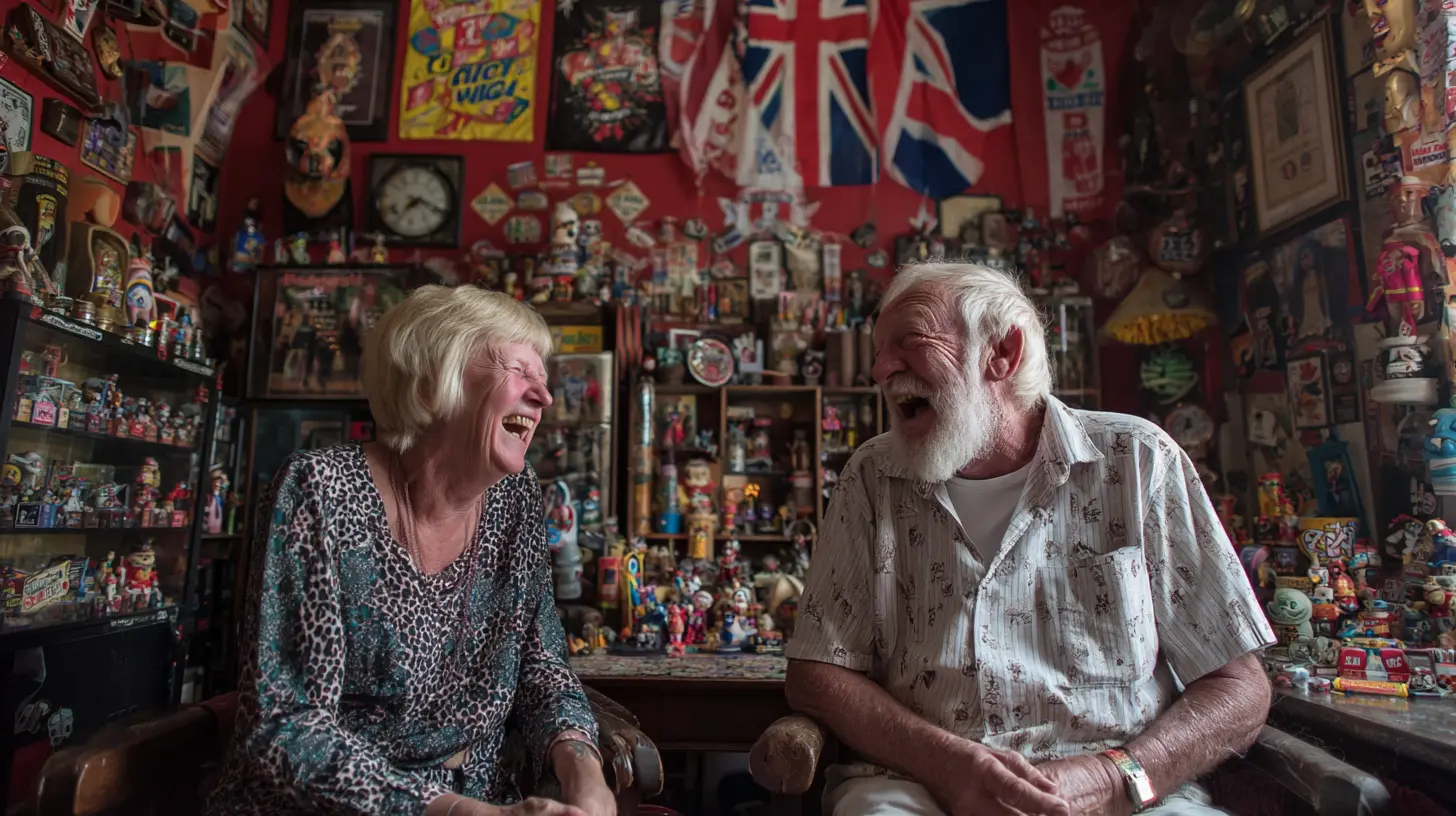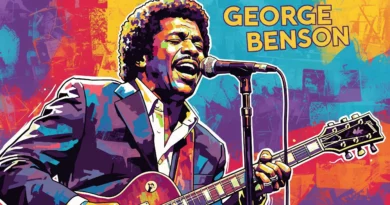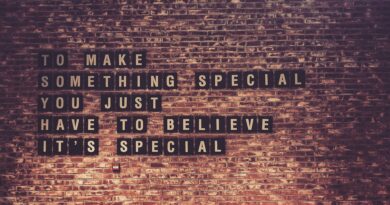Vídeo | Why I’m still learning languages in my 70s
Você já teve aquela sensação de tentar lembrar uma palavra que está “na ponta da língua”, mas ela simplesmente não vem? Esse fenômeno é comum, especialmente com o passar dos anos, e está diretamente relacionado ao modo como nosso cérebro evolui com o envelhecimento. Mas será que isso significa que
aprender um idioma em idade mais avançada é impossível? Ou será que há maneiras de contornar essas dificuldades e continuar aproveitando o processo de aprendizado? Neste vídeo é explorado o impacto da idade no aprendizado de idiomas, a relação entre memória e reconhecimento, e por que motivação e prazer são os maiores aliados para quem deseja dominar um novo idioma em qualquer fase da vida.
| Audio | |
|---|---|
Normal | Slow |
| English Transcript | Tradução |
| Today I'm gonna talk about language learning and aging. | Today I'm gonna talk about language learning and aging. |
| How often have you had the sensation that you're looking for a word or a name and you can't quite remember it, but you feel you should be able to remember it, that it's on the tip of your tongue, but you can't quite retrieve it? | How often have you had the sensation that you're looking for a word or a name and you can't quite remember it, but you feel you should be able to remember it, that it's on the tip of your tongue, but you can't quite retrieve it? |
| It's happening to me more and more or so it seems. | It's happening to me more and more or so it seems. |
| So I did a bit of research on the internet and apparently this tip of the tongue phenomenon is associated with aging. | So I did a bit of research on the internet and apparently this tip of the tongue phenomenon is associated with aging. |
| It's something that occurs throughout our lives as we get older, but it's particularly noticeable with people who are more advanced in age, such as me, for example, and I have noticed it with names and with words. | It's something that occurs throughout our lives as we get older, but it's particularly noticeable with people who are more advanced in age, such as me, for example, and I have noticed it with names and with words. |
| It seems that they, though I almost have the word, but I can't find it. | It seems that they, though I almost have the word, but I can't find it. |
| It turns out that as we get older, we are not as good at retrieving information from scratch, so to speak, from memory, recalling it, but we rely more and more on recognition. | It turns out that as we get older, we are not as good at retrieving information from scratch, so to speak, from memory, recalling it, but we rely more and more on recognition. |
| So given a choice between A and B, is it John or Bob, is it Mary or Sally, we can identify it as John or Mary. | So given a choice between A and B, is it John or Bob, is it Mary or Sally, we can identify it as John or Mary. |
| And this then relates to greater ease of comprehension or passive vocabulary or reading or understanding what we hear, where the need to recall something while not non-existent. | And this then relates to greater ease of comprehension or passive vocabulary or reading or understanding what we hear, where the need to recall something while not non-existent. |
| There are more clues in that context, in the comprehension activity than when we're all of a sudden looking for something for which we don't have as many clues. | There are more clues in that context, in the comprehension activity than when we're all of a sudden looking for something for which we don't have as many clues. |
| So that is natural and according to the information, and I'll leave some links here, it's not associated with Alzheimer's, which is kind of good to know. | So that is natural and according to the information, and I'll leave some links here, it's not associated with Alzheimer's, which is kind of good to know. |
| So I, I feel myself increasingly, you know, having difficulty retrieving things, that is perfectly normal, but it's not associated with Alzheimer's. | So I, I feel myself increasingly, you know, having difficulty retrieving things, that is perfectly normal, but it's not associated with Alzheimer's. |
| But it is an example of how our brains evolve and, we have to deal, live with where we are in the sort of, spectrum. | But it is an example of how our brains evolve and, we have to deal, live with where we are in the sort of, spectrum. |
| And it's kind of interesting because it relates to this whole issue of age and language learning, so the different things that might affect our ability or how well we can learn languages. | And it's kind of interesting because it relates to this whole issue of age and language learning, so the different things that might affect our ability or how well we can learn languages. |
| How at different, you know, ages we should deal with these situations. | How at different, you know, ages we should deal with these situations. |
| For example, it has often been postulated that there is a critical age for learning languages. | For example, it has often been postulated that there is a critical age for learning languages. |
| The only problem is that critical age, depending on the expert you consult, can be from the age of two to 13 to 17. | The only problem is that critical age, depending on the expert you consult, can be from the age of two to 13 to 17. |
| So once you're past 17, you're past a critical age for language learning. | So once you're past 17, you're past a critical age for language learning. |
| Problem is, in my case, I have essentially learned almost all of my languages other than English —I had French at school, but I didn't become fluent until after the age of 17— all the other languages, I learned them after the age of 17. | Problem is, in my case, I have essentially learned almost all of my languages other than English —I had French at school, but I didn't become fluent until after the age of 17— all the other languages, I learned them after the age of 17. |
| Theoretically, if I had put as much effort into learning languages before the age of 17, as much as I put in afterwards, maybe I would've done better. | Theoretically, if I had put as much effort into learning languages before the age of 17, as much as I put in afterwards, maybe I would've done better. |
| I don't know. | I don't know. |
| It doesn't matter. | It doesn't matter. |
| I have immensely enjoyed learning languages, even if I'm learning them more slowly now than I did before. | I have immensely enjoyed learning languages, even if I'm learning them more slowly now than I did before. |
| You know, it kind of reminds me one of the delights of when you watch American television is the amount of advertising for pharmaceutical products, one of which is this prevagen, which says it's gonna make your brain sharper, which to my mind only proves that a lot of people are concerned about this sensation that they're having more difficulty recalling names or words. | You know, it kind of reminds me one of the delights of when you watch American television is the amount of advertising for pharmaceutical products, one of which is this prevagen, which says it's gonna make your brain sharper, which to my mind only proves that a lot of people are concerned about this sensation that they're having more difficulty recalling names or words. |
| And so this is some kind of, supplement that's supposed to be good for you. | And so this is some kind of, supplement that's supposed to be good for you. |
| And certainly I'm not tempted to go and get it. | And certainly I'm not tempted to go and get it. |
| I don't believe in those things, but it's an indication that a lot of people are concerned about, or at least are aware of the fact that their brains are changing. | I don't believe in those things, but it's an indication that a lot of people are concerned about, or at least are aware of the fact that their brains are changing. |
| To my mind, it doesn't matter. | To my mind, it doesn't matter. |
| You have to deal with the hand you have at every point in your life. | You have to deal with the hand you have at every point in your life. |
| It's like saying some people have a talent for languages. | It's like saying some people have a talent for languages. |
| Maybe some have more talent than others. | Maybe some have more talent than others. |
| Maybe some pronounce better. | Maybe some pronounce better. |
| Maybe some are better at, producing correct usage. | Maybe some are better at, producing correct usage. |
| Maybe some are better at remembering vocabulary. | Maybe some are better at remembering vocabulary. |
| It doesn't matter. | It doesn't matter. |
| Wherever you are in that range, you can still enjoy learning languages. | Wherever you are in that range, you can still enjoy learning languages. |
| I often hear people say, if you have a musical ear, you'll be better at learning languages. | I often hear people say, if you have a musical ear, you'll be better at learning languages. |
| I've never felt that that was the case. | I've never felt that that was the case. |
| I'm not particularly good at music and even if people are very gifted at sort of identifying tones and musical sounds, and if that gives them an advantage in learning languages, it's still more a function of how much do you listen to that language? | I'm not particularly good at music and even if people are very gifted at sort of identifying tones and musical sounds, and if that gives them an advantage in learning languages, it's still more a function of how much do you listen to that language? |
| How much exposure do you have to that particular language? | How much exposure do you have to that particular language? |
| How much do you read in that language? | How much do you read in that language? |
| How much input are you getting in that language? | How much input are you getting in that language? |
| Some people may do better than others, but the bigger most important factor is how motivated you are. | Some people may do better than others, but the bigger most important factor is how motivated you are. |
| How much time do you put in? | How much time do you put in? |
| So getting back to this tip of the tongue phenomenon, because I was a bit concerned that I was having more trouble recalling words that I felt were on the tip of my tongue and I make mistakes. | So getting back to this tip of the tongue phenomenon, because I was a bit concerned that I was having more trouble recalling words that I felt were on the tip of my tongue and I make mistakes. |
| Let's say in my Persian, in my recent, interview that I put in my, last video, I noticed that I made mistakes in that video that I hadn't been making before. | Let's say in my Persian, in my recent, interview that I put in my, last video, I noticed that I made mistakes in that video that I hadn't been making before. |
| Now, I was aware that a portion of that conversation with my tutor was going to be used to include in my video on learning Persian, so I think I was under more pressure than normal, and I think pressure increases our difficulty of recalling, recalling the structure, the correct structure, recalling a vocabulary item. | Now, I was aware that a portion of that conversation with my tutor was going to be used to include in my video on learning Persian, so I think I was under more pressure than normal, and I think pressure increases our difficulty of recalling, recalling the structure, the correct structure, recalling a vocabulary item. |
| So that pressure might have contributed. | So that pressure might have contributed. |
| Also, you know, our performance goes up and down. | Also, you know, our performance goes up and down. |
| So it all comes back to then this idea to me, which is if as an older person, I rely more on comprehension. | So it all comes back to then this idea to me, which is if as an older person, I rely more on comprehension. |
| I rely more on recognition. | I rely more on recognition. |
| I rely more on being in an environment where I have more clues about the meaning rather than that ability to recall a word or a structure from scratch. | I rely more on being in an environment where I have more clues about the meaning rather than that ability to recall a word or a structure from scratch. |
| If that's the case, I should accept that and it doesn't diminish my enjoyment of the language. | If that's the case, I should accept that and it doesn't diminish my enjoyment of the language. |
| You can probably sense in my discussion Elaheh, I very much enjoyed that discussion, uh. | You can probably sense in my discussion Elaheh, I very much enjoyed that discussion, uh. |
| All of my activities in learning whichever language, I find them all extremely enjoyable. | All of my activities in learning whichever language, I find them all extremely enjoyable. |
| And if you find these activities enjoyable, if you continue doing them, if you continue engaging with the language, speaking with mistakes, listening, reading, you will improve. | And if you find these activities enjoyable, if you continue doing them, if you continue engaging with the language, speaking with mistakes, listening, reading, you will improve. |
| And so, age, critical age theory, you have a talent, huh, musical ability. | And so, age, critical age theory, you have a talent, huh, musical ability. |
| None of these things really matter as long as you are enjoying your language learning activity. | None of these things really matter as long as you are enjoying your language learning activity. |
| So I just thought I would touch a bit on the tip of the tongue experience, age, and language learning. | So I just thought I would touch a bit on the tip of the tongue experience, age, and language learning. |
| Thanks for listening. | Thanks for listening. |
| Bye for now. | Bye for now. |
Contagem de palavras
A tabela abaixo exibe as palavras encontradas neste vídeo, bem como o número de vezes em que aparecem.
Veja também: Para que serve esta tabela?
| Freq. | Palavra | Freq. | Palavra | Freq. | Palavra |
|---|---|---|---|---|---|
| 45 | I | 37 | that | 34 | you |
| 34 | of | 33 | the | 33 | it |
| 28 | is | 27 | and | 24 | to |
| 21 | in | 20 | are | 20 | a |
| 17 | have | 16 | more | 15 | so |
| 15 | not | 14 | learning | 13 | my |
| 12 | with | 12 | we | 12 | or |
| 12 | language | 12 | for | 12 | as |
| 12 | age | 10 | on | 10 | languages |
| 10 | if | 10 | how | 10 | but |
| 10 | at | 8 | this | 8 | some |
| 8 | much | 8 | do | 7 | than |
| 7 | people | 6 | which | 6 | was |
| 6 | recalling | 6 | know | 6 | better |
| 6 | all | 5 | tongue | 5 | tip |
| 5 | them | 5 | our | 5 | maybe |
| 5 | can | 5 | be | 5 | an |
| 4 | your | 4 | things | 4 | rely |
| 4 | put | 4 | me | 4 | matter |
| 4 | kind | 4 | had | 4 | good |
| 4 | from | 4 | does | 4 | critical |
| 4 | am | 4 | about | 3 | words |
| 3 | word | 3 | will | 3 | where |
| 3 | vocabulary | 3 | video | 3 | these |
| 3 | talent | 3 | structure | 3 | something |
| 3 | should | 3 | pressure | 3 | older |
| 3 | often | 3 | now | 3 | musical |
| 3 | mistakes | 3 | having | 3 | get |
| 3 | find | 3 | example | 3 | difficulty |
| 3 | did | 3 | deal | 3 | concerned |
| 3 | comprehension | 3 | clues | 3 | case |
| 3 | cannot | 3 | bit | 3 | before |
| 3 | associated | 3 | ability | 2 | would |
| 2 | when | 2 | very | 2 | think |
| 2 | they | 2 | there | 2 | then |
| 2 | still | 2 | sort | 2 | sensation |
| 2 | seems | 2 | scratch | 2 | say |
| 2 | s | 2 | retrieving | 2 | remember |
| 2 | relates | 2 | recognition | 2 | recall |
| 2 | reading | 2 | quite | 2 | problem |
| 2 | phenomenon | 2 | persian | 2 | past |
| 2 | particularly | 2 | others | 2 | other |
| 2 | only | 2 | one | 2 | noticed |
| 2 | normal | 2 | names | 2 | mind |
| 2 | might | 2 | mary | 2 | make |
| 2 | lot | 2 | looking | 2 | listening |
| 2 | learned | 2 | john | 2 | information |
| 2 | hear | 2 | gonna | 2 | getting |
| 2 | felt | 2 | feel | 2 | even |
| 2 | enjoyed | 2 | enjoyable | 2 | discussion |
| 2 | different | 2 | correct | 2 | continue |
| 2 | brains | 2 | been | 2 | because |
| 2 | back | 2 | aware | 2 | alzheimer |
| 2 | almost | 2 | aging | 2 | after |
| 2 | activity | 2 | activities | 1 | whole |
| 1 | who | 1 | while | 1 | whichever |
| 1 | wherever | 1 | what | 1 | were |
| 1 | well | 1 | watch | 1 | ve |
| 1 | used | 1 | usage | 1 | us |
| 1 | up | 1 | until | 1 | understanding |
| 1 | under | 1 | uh | 1 | two |
| 1 | tutor | 1 | turns | 1 | trouble |
| 1 | touch | 1 | tones | 1 | today |
| 1 | time | 1 | throughout | 1 | thought |
| 1 | though | 1 | those | 1 | theory |
| 1 | theoretically | 1 | their | 1 | thanks |
| 1 | tempted | 1 | television | 1 | talk |
| 1 | supposed | 1 | supplement | 1 | sudden |
| 1 | such | 1 | spectrum | 1 | speaking |
| 1 | speak | 1 | sounds | 1 | slowly |
| 1 | situations | 1 | sharper | 1 | sense |
| 1 | school | 1 | says | 1 | saying |
| 1 | sally | 1 | retrieve | 1 | research |
| 1 | reminds | 1 | remembering | 1 | recent |
| 1 | really | 1 | read | 1 | rather |
| 1 | range | 1 | proves | 1 | pronounce |
| 1 | products | 1 | producing | 1 | probably |
| 1 | prevagen | 1 | postulated | 1 | portion |
| 1 | point | 1 | pharmaceutical | 1 | person |
| 1 | performance | 1 | perfectly | 1 | passive |
| 1 | particular | 1 | out | 1 | once |
| 1 | occurs | 1 | noticeable | 1 | none |
| 1 | non | 1 | never | 1 | need |
| 1 | natural | 1 | name | 1 | myself |
| 1 | music | 1 | motivated | 1 | most |
| 1 | memory | 1 | meaning | 1 | may |
| 1 | many | 1 | making | 1 | made |
| 1 | long | 1 | lives | 1 | live |
| 1 | listen | 1 | links | 1 | like |
| 1 | life | 1 | let | 1 | leave |
| 1 | least | 1 | learn | 1 | last |
| 1 | just | 1 | item | 1 | issue |
| 1 | into | 1 | interview | 1 | internet |
| 1 | interesting | 1 | input | 1 | indication |
| 1 | increasingly | 1 | increases | 1 | include |
| 1 | improve | 1 | important | 1 | immensely |
| 1 | identifying | 1 | identify | 1 | idea |
| 1 | huh | 1 | here | 1 | has |
| 1 | happening | 1 | hand | 1 | greater |
| 1 | going | 1 | goes | 1 | go |
| 1 | gives | 1 | given | 1 | gifted |
| 1 | function | 1 | french | 1 | fluent |
| 1 | factor | 1 | fact | 1 | extremely |
| 1 | exposure | 1 | expert | 1 | experience |
| 1 | existent | 1 | evolve | 1 | every |
| 1 | essentially | 1 | environment | 1 | enjoyment |
| 1 | enjoying | 1 | enjoy | 1 | english |
| 1 | engaging | 1 | elaheh | 1 | effort |
| 1 | ease | 1 | ear | 1 | down |
| 1 | done | 1 | doing | 1 | diminish |
| 1 | depending | 1 | delights | 1 | conversation |
| 1 | contributed | 1 | context | 1 | consult |
| 1 | comes | 1 | choice | 1 | changing |
| 1 | certainly | 1 | bye | 1 | brain |
| 1 | bob | 1 | bigger | 1 | between |
| 1 | believe | 1 | being | 1 | become |
| 1 | b | 1 | apparently | 1 | amount |
| 1 | american | 1 | also | 1 | ages |
| 1 | afterwards | 1 | affect | 1 | advertising |
| 1 | advantage | 1 | advanced | 1 | according |
| 1 | accept | 1 | able |









